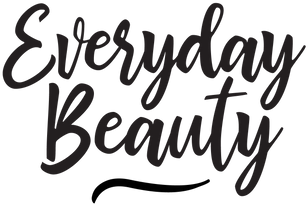Natural skincare is on the rise, but not everything labeled "natural" or "organic" is automatically safe. Many products contain plant-based or naturally derived ingredients that can irritate the skin, cause breakouts, or even accelerate aging. For those committed to holistic wellness, it’s essential to look beyond buzzwords and examine what’s actually in the jar. At Everyday Beauty, we believe in transparency, education, and offering clean alternatives that work.
The Problem With "Natural"
Just because something comes from a plant doesn’t mean it’s good for your skin. Poison ivy is natural, too. Many so-called natural skincare products include essential oils, botanical extracts, or raw ingredients that are too harsh, sensitizing, or poorly formulated. Common culprits include lemon oil, tea tree oil, witch hazel, and baking soda. These ingredients can disrupt your skin barrier, cause dryness, or lead to photosensitivity. For example, lemon oil may seem refreshing, but it's highly acidic and can make your skin more vulnerable to sun damage. Dermatology Times explains how essential oils can trigger contact dermatitis or allergic reactions in sensitive individuals.
Witch hazel is another ingredient that gets a lot of praise for its toning properties. However, many commercial versions contain alcohol, which strips the skin and leads to inflammation over time. Even baking soda, often touted as a natural exfoliant, has a pH that is far too alkaline for facial skin, leading to long-term damage to the acid mantle. If your skincare routine includes any of these ingredients, it may be time to reconsider.

Safer Plant-Powered Alternatives
Instead of lemon oil, consider using natural vitamin C from stabilized sources like magnesium ascorbyl phosphate or sodium ascorbyl phosphate. These offer the same brightening benefits without the harsh side effects. Everyday Beauty’s Organic Vitamin C Serum is formulated with a gentle, bioavailable form of vitamin C that enhances glow while respecting your skin’s balance.
For those drawn to tea tree oil for its antibacterial properties, safer options include niacinamide or willow bark extract. Niacinamide calms inflammation, controls oil, and strengthens the skin barrier without the drying effects of essential oils. Our Rosehip Seed Oil features niacinamide along with lightweight hydration to keep acne-prone skin clear and calm.
Instead of witch hazel, opt for calming ingredients like chamomile extract or aloe vera. These soothe the skin without alcohol or astringent effects. Aloe vera, in particular, has been shown in clinical studies to reduce redness and improve skin healing.
The Hidden Dangers of DIY Skincare
DIY skincare may seem appealing, but it often leads to unexpected irritation or damage. Raw apple cider vinegar, lemon juice, or crushed aspirin masks may go viral on TikTok, but dermatologists consistently warn against them. As Harvard Health Publishing notes, many home remedies are based on outdated or anecdotal advice and lack scientific backing. Your skin is a complex organ. It deserves ingredients that are tested, stabilized, and balanced.
Everyday Beauty products are formulated by professionals using only non-toxic, skin-compatible ingredients that deliver results without risk. We understand that going "natural" shouldn’t mean compromising your skin’s health.

Clean, But Not Compromised
The challenge with natural skincare is finding products that are truly clean without being ineffective. Many brands remove synthetic preservatives only to end up with mold-prone formulas. Others avoid silicones or emulsifiers and end up with products that separate or feel unpleasant on the skin.
At Everyday Beauty, we don’t cut corners. Our ingredient philosophy is centered around safety, efficacy, and sustainability. We carefully vet every component to ensure it supports your skin’s natural functions while avoiding known irritants, sensitizers, and endocrine disruptors. Our products are free of synthetic fragrance, parabens, phthalates, and other questionable additives—but they’re also stable, effective, and a pleasure to use.
How to Spot Greenwashing
Greenwashing is rampant in the beauty industry. Brands slap words like "organic," "eco," or "non-toxic" on their packaging without any certification or regulatory backing. There are currently no legal standards for "natural" in cosmetics, which makes it easy for companies to mislead consumers.
Learn to read ingredient labels and research unfamiliar names. Resources like EWG's Skin Deep database can help you assess the safety of specific ingredients. Better yet, stick with brands like Everyday Beauty that are upfront about what goes in—and stays out—of every bottle.

Trust Your Skin With Everyday Beauty
Navigating the world of natural skincare doesn’t have to be overwhelming. By avoiding harsh or overhyped ingredients and choosing gentle, science-backed alternatives, you can support your skin’s long-term health and vitality.
Everyday Beauty offers a full line of clean skincare solutions that are as effective as they are safe. Whether you're looking to hydrate, brighten, balance, or calm your complexion, our formulations deliver results without compromise. Explore our best sellers and make the switch to skincare that actually cares.
Your skin deserves better than empty promises and irritating ingredients. Trust Everyday Beauty to provide the clean, holistic care your skin truly needs.

